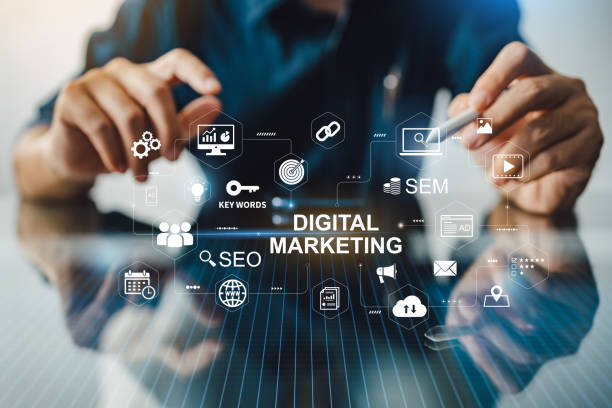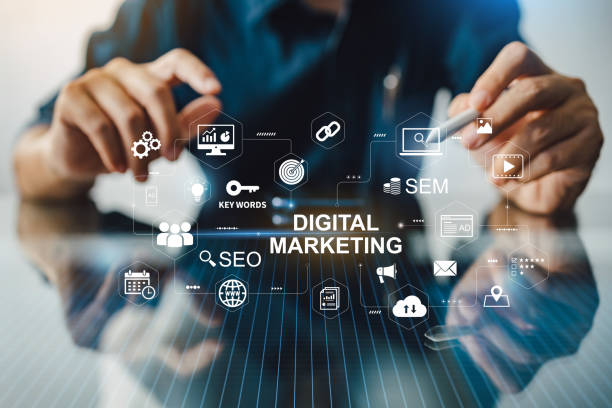In today’s digital age, businesses must recognize the power of the internet. With over 4.9 billion active internet users, there are vast opportunities to connect with potential customers online. Whether you’re a small startup or a large corporation, digital marketing is essential.
At Digital Marketing Winds, we see how quickly the digital landscape changes. As we move forward, digital marketing strategies keep evolving. Since the digital space is expanding rapidly, businesses must adapt to stay competitive and reach their target audience. In this article, we’ll explore why digital marketing matters and how it can help businesses grow online.
The Rise of Digital Marketing
Digital marketing isn’t new, but its importance has soared in recent years. Now, businesses are focusing more on online strategies than traditional marketing.
Digital marketing includes various tactics, such as:
- Search engine optimization (SEO)
- Social media marketing
- Email campaigns
- Content marketing
- And more
One key driver behind digital marketing’s rise is our growing reliance on the internet. With mobile devices and easier access, consumers spend more time online. This gives businesses a great chance to reach their target market cost-effectively.
The Benefits of Digital Marketing
- Measurable Results: A major benefit of digital marketing is tracking campaign effectiveness. Businesses can use analytics tools to monitor key performance indicators (KPIs) like website traffic and conversion rates. This data helps businesses see what works and what doesn’t, allowing for campaign optimization.
- Global Reach: One of the biggest advantages of digital marketing is its global reach. It breaks geographical barriers, letting businesses connect with customers worldwide. Whether you have a local shop or a global company, the internet helps you expand your customer base.
- Cost-Effective: Traditional marketing methods like TV and print ads can be very costly. In contrast, digital marketing provides affordable options. Using platforms like Google Ads and social media, businesses can target ads to users most likely to convert.
- Enhanced Customer Engagement: Digital marketing allows real-time customer interaction. Platforms like Facebook, Instagram, and Twitter let businesses connect directly. By responding to comments and sharing relevant content, businesses can build strong relationships and foster brand loyalty.
- Targeted Advertising: Unlike traditional marketing, digital marketing allows for highly targeted ads. With tools like Google AdWords, businesses can customize their messages for specific audience segments based on demographics and interests.
- Increased Brand Awareness: Through digital channels, businesses can boost visibility and brand recognition. Using strategies like content marketing and SEO, they can establish themselves as industry leaders and improve their presence.
- Access to Data and Insights: One of the greatest advantages of digital marketing is the abundance of data. Tools like Google Analytics help businesses track user behavior and gain insights into what resonates with their audience. This data-driven approach empowers informed decision-making.
Digital Marketing Strategies for Success
To succeed in digital marketing, choosing the right strategies is key. Here are several strategies to drive growth:
- Search Engine Optimization (SEO): SEO is the backbone of successful digital marketing. By optimizing your website, you can increase organic traffic and improve search rankings. This involves keyword research, on-page optimization, and ensuring your site is mobile-friendly.
- Content Marketing: Creating high-quality content is crucial for attracting your target audience. Whether it’s blog posts, videos, or infographics, content marketing positions businesses as trusted industry resources.
- Social Media Marketing: Social media platforms are powerful for audience engagement. By creating compelling campaigns and interacting with followers, businesses can build a loyal community. Additionally, social media is a great way to promote products and drive website traffic.
- Email Marketing: Despite the rise of social media, email marketing remains effective for nurturing customer relationships. By sending personalized emails, you can increase conversions and keep your audience informed about new products or services.
- Pay-Per-Click Advertising (PPC): PPC advertising allows businesses to place ads on search engines and social media, paying only when users click. This strategy generates immediate traffic and drives conversions. By targeting specific keywords, businesses reach the right audience.
- Influencer Marketing: Partnering with influencers can boost your brand’s credibility. With their large followings, influencers promote your products authentically. This strategy is especially effective on platforms like Instagram and TikTok.
The Future of Digital Marketing
As technology evolves, the digital marketing landscape will change. Some key trends expected to shape the future include:
- Artificial Intelligence (AI): AI is already impacting digital marketing. Tools like chatbots and predictive analytics are changing how businesses interact with customers. In the future, AI will personalize experiences and optimize campaigns even more.
- Voice Search: With voice-activated devices like Amazon Echo, voice search is growing in importance. Businesses must optimize their content for conversational queries, which are longer than text-based searches.
- Augmented Reality (AR): AR technology is changing how consumers engage with products. Brands use AR to let customers visualize products in their homes. This trend is expected to grow, enhancing customer experiences.
- Video Marketing: Video remains one of the most engaging content forms. To capture audience attention, businesses must invest in video marketing. Video effectively conveys brand messages, leaving lasting impressions.
Digital marketing business technology concept. Website advertisement email social media network, SEO, SEM video and mobile application icons in virtual screen.

 WhatsApp Us Now
WhatsApp Us Now








